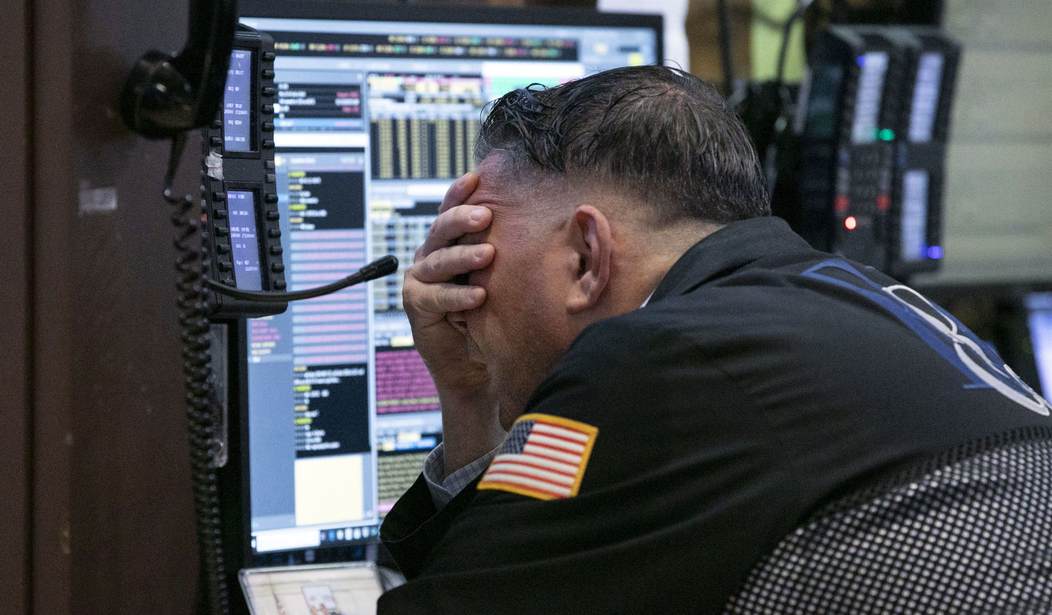Stevie Wonder could have seen this coming.
From The Hill:
Shareholders for the collapsed Silicon Valley Bank have filed a class action lawsuit against the bank’s parent company and its leaders over allegations that they did not disclose how interest rate increases could have an effect on business.
They are not wrong. As RedState reported, financier and radio host Zach Abraham laid out how this was obvious to everyone in the industry, but this information was not relayed to the average American and the shareholders of companies. It was gross incompetence of the highest order.
The shareholders, led by Chandra Vanipenta, filed the lawsuit on Monday against SVB Financial Group, former CEO Greg Becker and Chief Financial Officer Daniel Beck to seek unspecified damages for investors who backed the bank between June 16, 2021 and March 10, 2023.
The complaint states that quarterly and annual financial reports from the bank did not take into account warnings that the Federal Reserve gave about raising interest rates.
The complaint also alleges:
The 2021 Annual Report understated the risks posed to the Company by not disclosing that likely interest rate hikes had the potential to cause irrevocable damage to the Company. Specifically, the 2021 Annual Report stated, “[o]ur interest rate spread may decline in the future.”
The parties accuse CEO Becker and CFO Beck of intentionally deceiving investors, and acting with “reckless disregard for the truth.” In quarterly statements filed, they painted a calm picture of SVB’s finances to investors, when facts on the ground and rumblings from the Federal Reserve indicated otherwise. They claim that the public statements were false, misleading, and in violation of the Securities Exchange Act of 1934.
Led by Vanipenta, these plaintiffs are the first in line in what is expected to be a very long line of lawsuits against the bank. Their troubles led with CEO Becker unloading $3.6 million in SVB stock starting in January, then his sudden resignation as director of the Federal Reserve Bank of San Francisco. On Friday, the bank’s walls began caving in, as Senior Editor Joe Cunningham reported:
The bank’s parent company, SVB Financial Group, was racing to find a buyer after scrapping a planned $2.25 billion share sale Friday morning. Regulators weren’t willing to wait. The California Department of Financial Protection and Innovation closed the bank Friday within hours and put it under the control of the FDIC.
SVB, based in Santa Clara, Calif., earlier this week surprised investors by announcing that it lost nearly $2 billion selling assets following a larger-than-expected decline in deposits. The stock has lost more than 80% since then, and tech clients rushed to pull their deposits over concerns about the bank’s health.
[…]
After its major financial losses, SVB tried and failed to find a buyer, according to CNBC. Shares of its parent company, SVB Financial, fell by 60 percent on Thursday, which led to the aforementioned loss in market value in other institutions.
And it was downhill from there. As RedState further reported, a focus on diversity, equity, and inclusion initiatives, rather than mitigating investor risks, may have been a factor in the lack of oversight conducted. Its main headquarters spending over a year looking for a replacement risk officer probably did not help matters either.
This is real from the WSJ why SVB failed:
… besides 91% of their board being independent & 45% women, they also have “1 Black,” “1 LGBTQ+” and “2 Veterans.” I’m not saying 12 white men would have avoided this mess, but the company may have been distracted by diversity demands. pic.twitter.com/eIfGiwh679
— unusual_whales (@unusual_whales) March 13, 2023
The SVB disaster has caused a ripple effect throughout the financial and banking industry. Along with the upcoming lawsuits, the finance industry, market watchers, and concerned investors will be unpacking its demise for months to come.














Join the conversation as a VIP Member